Gender Equality National Report Hungary - European-microfinance ...
Gender Equality National Report Hungary - European-microfinance ...
Gender Equality National Report Hungary - European-microfinance ...
You also want an ePaper? Increase the reach of your titles
YUMPU automatically turns print PDFs into web optimized ePapers that Google loves.
men.” 35 The long-term full employment period of the socialist era (which included<br />
unemployment behind the gates) still has its socialising effects on women living off wages<br />
and salaries: a life spent at a single workplace, state-provided services helping with<br />
homework (is at a low standard), acknowledgement of male-centred workplaces, sometimes<br />
even authoritarian socialisation of the families all worked against the adoption and realisation<br />
of the gender-conscious female role model.<br />
The double pressure on women originating from the known social and demographic reasons<br />
is not easing, but instead becoming stronger. The ageing society puts an increasing burden<br />
on both families (including women) and the social security systems. The decrease in the<br />
share of elderly people and hence the financing of the pension system can only be provided<br />
by increasing the number of births. This means that women should have more children and<br />
also spend more time making money. This is impossible without a more righteous sharing of<br />
housework between the genders.<br />
The most important reason for the deprivation of women can be found among the deeply<br />
preserved traditions and the social prejudice against the idea of equal opportunities. So the<br />
most important tool to improve the conditions is to make the general opinion sensitive<br />
enough to suppress prejudice and to improve social acceptance of the idea of equal<br />
opportunities.<br />
Based on the domestic surveys of the last fifteen years, most of the Hungarian population<br />
has a conservative point of view regarding the topic of gender equality. Even according to<br />
international comparisons, the Hungarian families are the most characterised by the<br />
traditional division of labour, the overburdened situation of women and acceptance of these<br />
facts by the people affected by them.<br />
3.6. <strong>Gender</strong> equality regarding enterprise supporting institutes<br />
3.6.1 Actions promoting equality in enterprise development programs<br />
In recent years, especially after <strong>Hungary</strong> joined the EU (2004), the number and financial<br />
background of programs and measures enhancing equal opportunities for women in<br />
enterprise development significantly increased. Prior to that the programs initiated and<br />
financed by the EU PHARE program had strived to address and tackle the problem.<br />
PHARE supported the launch of the Regina Model Program (RMP), a complex theoretical<br />
reintegration model in country development and the labour market, which aims to offer<br />
solutions to problems and needs arising in women’s reality. The Model’s philosophy is that a<br />
woman has the right to make her own decision about having a child and that women should<br />
have equal opportunities in the labour market whether they decide to have a child or not.<br />
After 2004, within the frame of the 1st <strong>National</strong> Development Plan supported by the EU,<br />
especially and primarily the 2nd component of HEFOP’s (Human Resources Development<br />
Operative Program), there was a call for application No. 1.3.1 regarding women on the<br />
labour market focused on female entrepreneurs, also emphasizing the importance of training<br />
and networking. As women’s businesses in <strong>Hungary</strong> are usually small enterprises, they are<br />
vulnerable. The majority are micro-enterprises, which employ fewer than 10 people, if any.<br />
A great number of them are self-employed.<br />
One way for some of the employees to escape unemployment after the political change was<br />
to start a new business using their own and their family’s capital, expertise and work at their<br />
35 Acknowledgement and Exercise of Equal Opportunities in <strong>Hungary</strong> (especially considering <strong>Gender</strong><br />
<strong>Equality</strong>) – webpage of SEED Foundation for Small Enterprise Development<br />
55



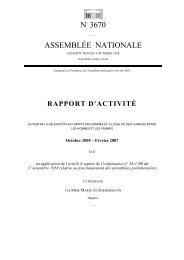
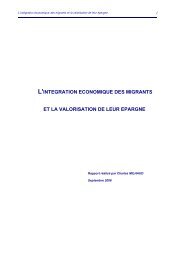
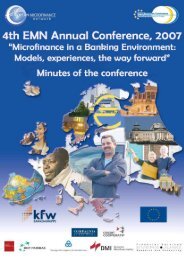
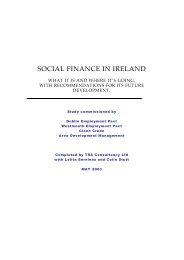
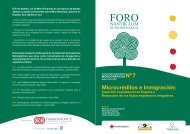
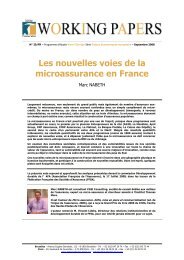
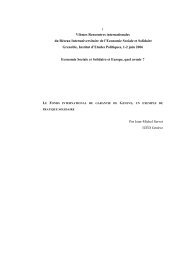
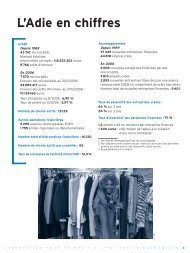
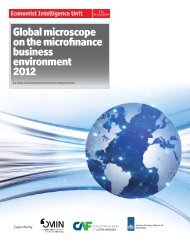
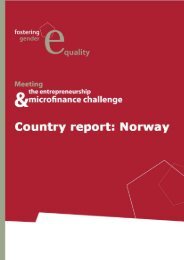
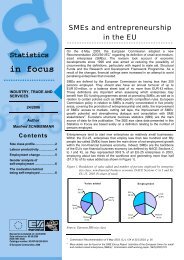
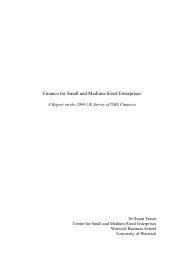
![Joint Report on Social Protection and Social Inclusion [2005]](https://img.yumpu.com/19580638/1/190x132/joint-report-on-social-protection-and-social-inclusion-2005.jpg?quality=85)
